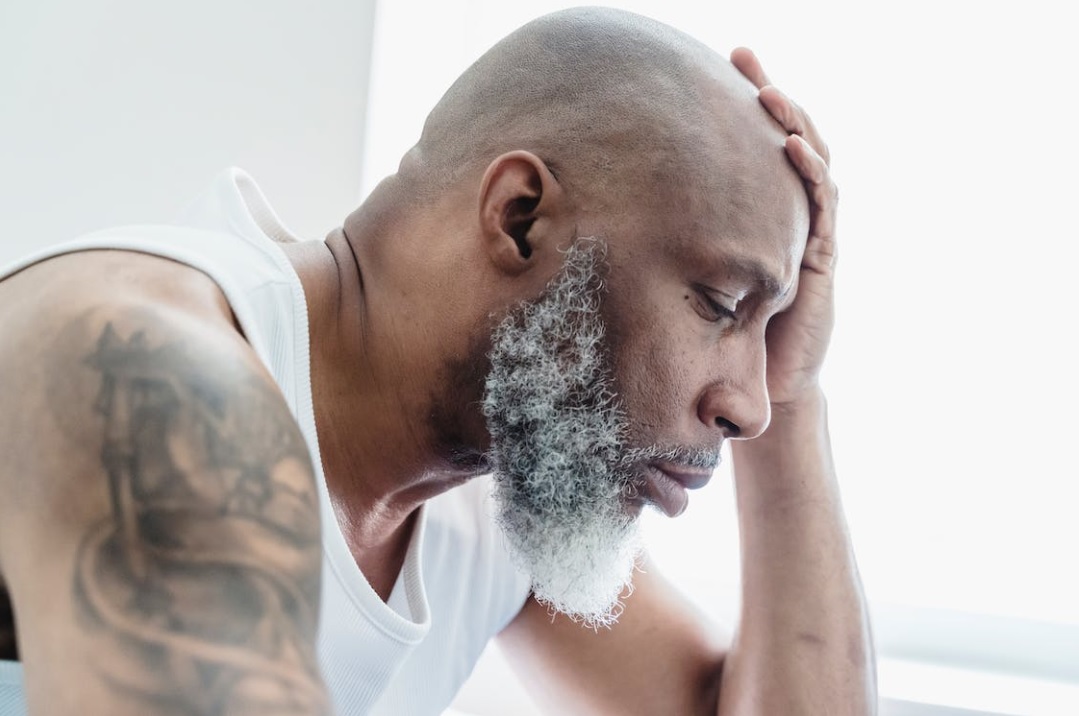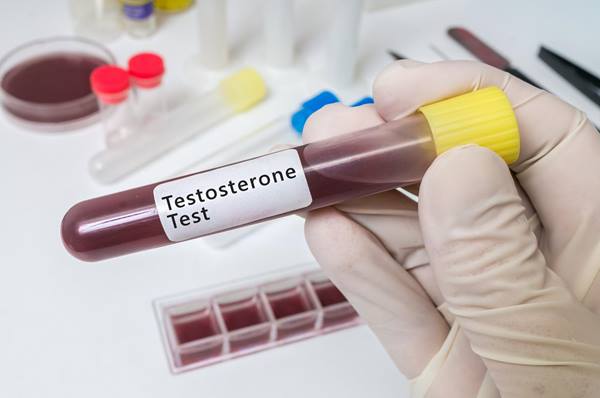Hair loss, a subject associated with aging, has seen a surprising twist. Younger individuals now face this challenge. We explore the relationship between low testosterone levels and hair loss. Testosterone, particularly DHT, is crucial for hair growth. Excessive DHT levels can gradually miniaturize hair follicles, causing thinning.
Once testosterone levels recover, you will notice increased hair growth. You can find effective testosterone supplements at Nypost.com, which will help you with recovering your testosterone levels.
However, not all men with low testosterone experience hair loss, and not all experiencing hair loss have low testosterone. Genetic factors, like sensitivity to DHT, contribute to male pattern baldness.
Hair loss is multifactorial. Environmental influences, lifestyle choices, and genetics intertwine with testosterone, shaping this puzzle. Seek professional advice for accurate evaluation and guidance.
Hair loss isn’t limited to testosterone-related causes. Other forms are unrelated to hormones. For hair loss concerns, consult a healthcare professional.
In the following sections, we explore the relation between testosterone and hair loss, providing a comprehensive overview. Let’s embark on this enlightening journey, unraveling the mysteries of hair loss and its ties to testosterone.
How Does Testosterone Cause Hair Loss in Males?
Testosterone is a hormone that plays a crucial role in the development and maintenance of male physical characteristics, including hair growth. Testosterone is converted into dihydrotestosterone (DHT), which is responsible for hair follicle miniaturization and eventual hair loss. DHT binds to androgen receptors on hair follicles, causing them to shrink, resulting in shorter and thinner hair strands.
Does High or Low Testosterone Cause Hair Loss?
While high levels of testosterone are often associated with male pattern baldness, the relationship between low testosterone and hair loss is more complex. While low testosterone itself does not directly cause hair loss, it can contribute to conditions that do, such as stress, illness, or nutritional deficiencies.
Is Hair Loss from Low Testosterone Reversible?
Hair loss caused by low testosterone is reversible if the underlying cause is treated. Addressing any nutritional deficiencies, reducing stress levels, or treating underlying medical conditions can help promote hair growth. Additionally, some hair loss treatments, such as minoxidil and finasteride, may be effective in treating hair loss caused by low testosterone.
However, for individuals looking for a more comprehensive approach to address low testosterone levels and promote overall well-being, testosterone booster supplements can be a viable option. These supplements are designed to naturally enhance testosterone production in the body, potentially leading to increased energy levels, improved muscle mass, and even promoting hair growth.
When choosing testosterone booster supplements, it is crucial to prioritize safety and effectiveness. You can consider giving a read to a few trusted government resources for reviews and recommendations, it will help you make an informed decision. Look for supplements that contain scientifically-backed ingredients like Tribulus terrestris, fenugreek extract, and D-aspartic acid, which have shown potential in supporting healthy testosterone levels.
It’s important to note that testosterone booster supplements are not a quick fix or a substitute for a healthy lifestyle. They should be seen as a complement to a balanced diet, regular exercise, and stress management. Before starting any supplementation regimen, it’s advisable to consult with a healthcare professional, especially if you have pre-existing medical conditions or are taking medications.

Types of Baldness In Men (Know Yours)
There are several types of baldness in men, each with unique causes and patterns of hair loss. Understanding the different types of baldness can help determine the best treatment options.
Androgenic Alopecia
Androgenic alopecia, also known as male pattern baldness, is the most common type of hair loss in men. It is characterized by a receding hairline and balding at the crown of the head. Androgenic alopecia is primarily caused by genetics and the presence of DHT.
Involutional Alopecia
Involutional alopecia is a natural age-related hair loss that occurs as hair follicles gradually enter a resting phase and produce thinner, shorter hair strands. It is most common in individuals over 50 years of age.
Alopecia Areata
Alopecia areata is an autoimmune disorder in which the body’s immune system attacks hair follicles, leading to hair loss in small, round patches. In some cases, alopecia areata can progress to total scalp hair loss (alopecia totalis) or complete body hair loss (alopecia universalis).
Telogen Effluvium
Telogen effluvium is a temporary form of hair loss caused by stress, illness, medication, or hormonal changes. It occurs when hair follicles enter the resting phase prematurely, leading to increased hair shedding.
Diagnose & Treat The Symptom
Diagnosing the underlying cause of hair loss is essential in determining the appropriate treatment plan. A physician may perform blood tests, scalp biopsies, or other diagnostic tests to determine the cause of hair loss.
Treatment options for hair loss caused by low testosterone may include addressing any underlying medical conditions, nutritional deficiencies, or reducing stress levels. In some cases, hair loss medications such as minoxidil and finasteride may be effective in promoting hair growth.
Testosterone Replacement Therapy and Hair Loss
Testosterone replacement therapy (TRT) may be an effective treatment option for men with low testosterone levels. However, TRT can also contribute to hair loss, particularly if the therapy is not properly managed.
You May Also Like to Read: If You Starve Yourself How Long to Lose Weight?

FAQs On Symptoms Of Low Testosterone Levels
Q. Can low testosterone cause hair loss in women?
Yes, low testosterone levels can contribute to hair loss in women. However, hair loss in women is often caused by other factors, such as hormonal imbalances or thyroid disorders.
Q. Can testosterone replacement therapy promote hair growth?
Testosterone replacement therapy may promote hair growth in some men with low testosterone levels. However, TRT should only be administered under the supervision of a qualified healthcare professional.
Q. Are there any natural remedies for hair loss caused by low testosterone?
While there is no cure for hair loss caused by low testosterone, certain natural remedies may help promote hair growth. These include maintaining a balanced and nutritious diet, managing stress levels, getting enough sleep, and regularly exercising. Additionally, some supplements such as saw palmetto, biotin, and zinc have been shown to promote hair growth in some individuals. However, it is important to note that natural remedies should not be considered a substitute for medical treatment and should always be discussed with a healthcare professional.
Q. Can hair loss caused by low testosterone be prevented?
While hair loss caused by low testosterone cannot be prevented entirely, maintaining a healthy lifestyle and addressing any underlying medical conditions or nutritional deficiencies can help promote hair growth and reduce the risk of hair loss. Additionally, regular scalp massages, using gentle hair care products, and avoiding tight hairstyles can help prevent hair breakage and promote healthy hair growth.
Q. How long does it take for hair to grow back after treating low testosterone?
The time it takes for hair to grow back after treating low testosterone can vary depending on the underlying cause of hair loss, the individual’s health, and the effectiveness of the treatment. In some cases, hair growth may begin within a few weeks of starting treatment, while in other cases, it may take several months to a year to see noticeable improvements.
Conclusion: Does Low Testosterone Really Cause Hair Loss?
Low testosterone itself does not directly cause hair loss, but it can contribute to conditions that do. Understanding the types of baldness and their causes, diagnosing the underlying cause of hair loss, and addressing any underlying medical conditions or nutritional deficiencies are key in determining the appropriate treatment plan. Whether through natural remedies, medication, or testosterone replacement therapy, it is important to work with a qualified healthcare professional to find the best treatment option for individual needs.
